
报名即将截止 | 2025年数据科学国际研讨会(MIIS)会议通知
2025
数据科学国际研讨会
The International Workshop on Mathematical
Issues in Information Sciences
Introduction
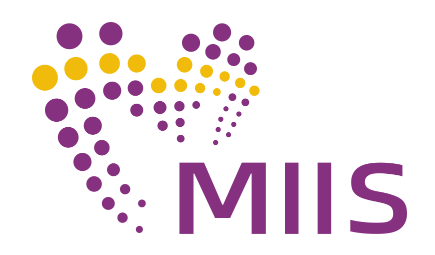
The International Workshop on Mathematical Issues in Information Sciences (MIIS) was established in 2012. Over the past decade, with the efforts of Prof. Zhi-Quan (Tom) Luo, it has grown into a premier international academic conference in the field of data science.
Since 2016, the MIIS workshop has been hosted by Shenzhen Research Institute of Big Data. The workshop serves as a platform for leading scientists, researchers, and engineers to exchange innovative ideas, theories, and technologies in information science and big data. Guided by the principle of "mathematics-based, data-driven, and application-oriented", MIIS fosters advancements in data science research and promotes its industrial applications.
MIIS 2025 will take place from Aug. 14th to Aug. 16th, 2025, hosted and organized by Shenzhen Research Institute of Big Data, co-sponsored by The Chinese University of Hong Kong (Shenzhen), Shenzhen International Center for Industrial and Applied Mathematics, Academy of Mathematics and Systems Science Chinese Academy of Sciences, Guangdong Engineering Technology Research Center of Intelligent Industrial Twin and Optimization, Guangdong Provincial Key Laboratory of Big Data Computing, Liu Hui Laboratory, CSIAM Activity Group on Mathematics and Industry, Shenzhen Key Laboratory of Cross-Modal Cognitive Computing, and The Forefront.
01.Information
Date & Venue
大会时间、地点
Date: Aug. 14-16
Venue: W201, The Chinese University of Hong Kong, Shenzhen
 |
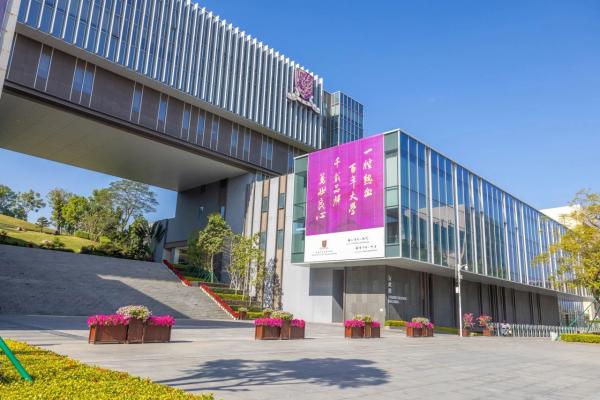 |
Registration
会议注册
Scan the QR Code or click https://www.sribd.cn/MIIS2025/registration.html to register.

·Standard Registration:
August 1-August 13, 2025 17:00 (Online)
August 14, 2025 14:00-20:00 (Offline)
(Supports POS machines, Alipay)
·Check-in:
August 14, 2025 14:00-20:00 (Thursday)
Committee
组委会
General Chair
· Zhi-Quan Luo, Shenzhen Research Institute of Big Data
· Tiegen Yu, Shenzhen Research Institute of Big Data
Executive Chair
· Haizhou Li, Shenzhen Research Institute of Big Data
· Xiaoping Wang, Shenzhen International Center for Industrial and Applied Mathematics
Executive Secretary
· Chao Shen, Shenzhen Research Institute of Big Data
TPC Co-Chair
· Tsung-Hui Chang, Shenzhen Research Institute of Big Data
· Ya-Feng Liu, Beijing University of Posts and Telecommunications
· Akang Wang, Shenzhen Research Institute of Big Data
02.Speaker

Tsung-Hui Chang
The Chinese University of Hong Kong, Shenzhen Shenzhen Research Institute of Big Data
Tsung-Hui Chang is currently a Professor and Associate Dean of School of Artificial Intelligence, the Chinese University of Hong Kong, Shenzhen (CUHK-SZ), China. His research interests include signal processing and optimization problems in data communications, machine learning, and big data analysis. Dr. Chang is a Fellow of IEEE and an Elected Member of the IEEE SPS Signal Processing for Communications and Networking Technical Committee (SPCOM TC) (2020/01-). He was the Founding Chair of the IEEE SPS Integrated Sensing and Communications Technical Working Group (ISAC TWG), and the Regional Director-at-Large of Board of Governors of IEEE SPS. He received the IEEE ComSoc Asian-Pacific Outstanding Young Researcher Award in 2015, the IEEE Signal Processing Society (SPS) Best Paper Award in 2018 and 2021, and the Outstanding Research Award of CUHK-SZ in 2024. He served on the editorial board for major SP journals, including an Associate Editor (2014/08-2018/12) and Senior Area Editor (2021/02-2025/02) of IEEE TRANSACTIONS ON SIGNAL PROCESSING, IEEE TRANSACTIONS ON SIGNAL AND INFORMATION PROCESSING OVER NETWORKS (2015/01-2018/12), IEEE OPEN JOURNAL OF SIGNAL PROCESSING (2020/01-2024/12).
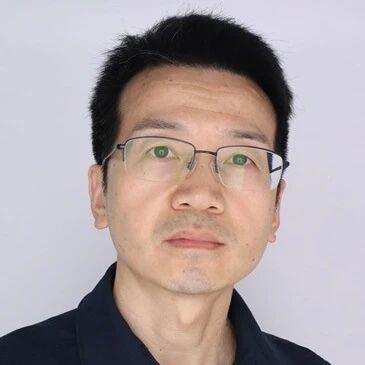
Peijun Li
Chinese Academy of Sciences
Peijun Li is a Professor at the Academy of Mathematics and Systems Science, Chinese Academy of Sciences. His research focuses on inverse problems in PDEs, as well as scattering and inverse scattering problems for wave equations.
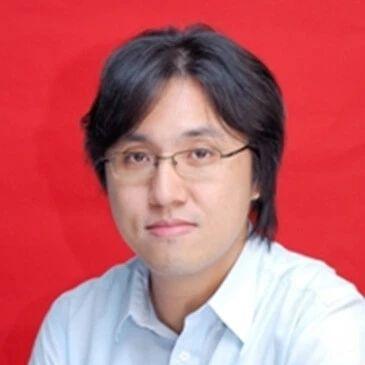
Wing Kin Ma
The Chinese University of Hong Kong
Wing-Kin (Ken) Ma is a Professor with the Department of Electronic Engineering, The Chinese University of Hong Kong. His research interests lie in signal processing, optimization and communications, with recent focus on structured matrix factorization and coarsely quantized MIMO transceiver designs. He has rich editorial experience; in particular, he was the Editor-in-Chief of IEEE Transactions on Signal Processing from 2021 to 2023. He is the recipient of several awards such as 2015 IEEE Signal Processing Magazine Best Paper Award and 2018 IEEE Signal Processing Society (SPS) Best Paper Award. He previously served as a Technical Committee Member of SPCOM-TC and SPTM-TC, as the SPS Regional 10 Director-at-Large (2020—2021), and as a Technical Program Co-Chair of ICASSP 2023; and was an IEEE SPS Distinguished Lecturer (2018—2019).
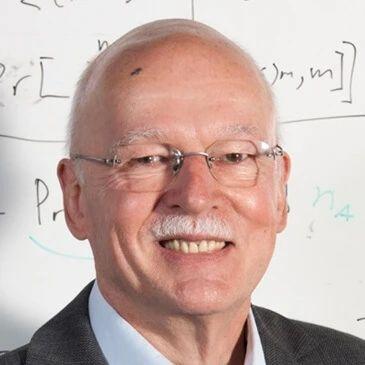
Rolf H. Möhring
Berlin University of Technology
Rolf H. Möhring is professor emeritus for applied mathematics and computer science at Berlin University of Technology. His more than 120 papers concern graph algorithms, combinatorial optimization, scheduling, logistics, and industrial applications. He was chair of the German OR Society and the Mathematical Optimization Society. Between 2014 and 2022 Rolf has been visiting professor at Beijing University of Technology and Hefei University, and a PIFI fellow of the Chinese Academy of Sciences (CAS).
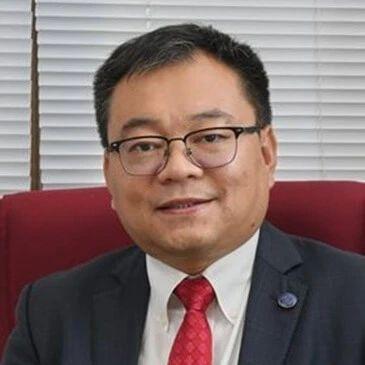
Zhonghua Qiao
The Hong Kong Polytechnic University
Prof. QIAO Zhonghua is Chair Professor of Numerical Analysis and Scientific Computing at The Hong Kong Polytechnic University. He earned his PhD from Hong Kong Baptist University in 2006. Following this, he was a postdoctoral research fellow at North Carolina State University (2006–2008) and subsequently served as a research assistant professor at Hong Kong Baptist University (2008–2011). Prof. Qiao joined The Hong Kong Polytechnic University as an assistant professor in 2011, rising to associate professor in.
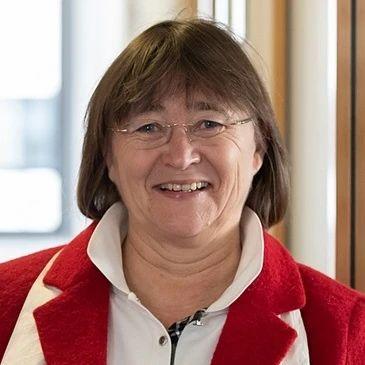
Tanja Schultz
Universität Bremen
Tanja Schultz is Professor and Director of the Cognitive Systems Lab at the University of Bremen, Germany, and Fellow of ISCA (2016), IEEE (2020), AAIA (2021), and ELLIS (2024). She received her Diploma and Doctoral degrees in Informatics from the University of Karlsruhe, Germany. Prior to her time in Bremen, she was a professor at KIT, Germany for seven years and a researcher and adjunct research professor at Carnegie Mellon University in the USA for over 20 years. In her research, she and her team blend machine learning with innovations in biosignal processing to create biosignal-adaptive Artificial Intelligence (AI). Her focus is on putting the human center stage and in the loop to dynamically adapt AI to human needs. She has received several awards for her contributions and currently advancing this field as spokesperson of the University’s profile area “Minds, Media, Machines”, as spokesperson of the DFG Research Unit Lifespan AI, and as co-speaker of two research training groups that put the human in the loop of AI systems.

Tamás Terlaky
Lehigh University
Dr. Terlaky has published four books, edited over ten books and journal special issues and published over 200 research papers. Topics include theoretical and algorithmic foundations of mathematical optimization; nuclear reactor core reloading, oil refinery, VLSI design, radiation therapy treatment, and inmate assignment optimization; quantum computing.
Dr. Terlaky is Editor-in-Chief of the Journal of Optimization Theory and Applications. He has served as associate editor of ten journals and has served as conference chair, conference organizer, and distinguished invited speaker at conferences all over the world. He was general Chair of the INFORMS 2015 Annual Meeting, a former Chair of INFORMS’ Optimization Society, Chair of the ICCOPT Steering Committee of the Mathematical Optimization Society, Chair of the SIAM AG Optimization, and Vice President of INFORMS. Now he co-Chairs the QCOR Committee of INFORMS. He received the MITACS Mentorship Award; Award of Merit of the Canadian Operational Research Society, Egerváry Award of the Hungarian Operations Research Society, H.G. Wagner Prize of INFORMS, Outstanding Innovation in Service Science Engineering Award of IISE. He is Fellow of INFORMS, SIAM, IFORS, The Fields Institute, and elected Fellow of the Canadian Academy of Engineering.

Kim-Chuan Toh
National University of Singapore
Kim-Chuan Toh is a Provost’s Chair Professor in the Department of Mathematics at the National University of Singapore. He works extensively on convex programming, particularly large-scale matrix optimization problems such as semidefinite programming, and optimization problems arising from machine learning and statistics. Currently he serves as a co-Editor for Mathematical Programming, an Area Editor for Mathematical Programming Computation, and Associate Editor for several journals including SIAM J. on Optimization, and Operations Research. He received the INFORMS Optimization Society Farkas Prize in 2017, and the triennial Mathematical Optimization Society Beale-Orchard Hays Prize in 2018 and Paul Tseng Memorial Lectureship in Continuous Optimization in 2024. He is a Fellow of the Singapore National Academy of Science, and a Fellow of SIAM.
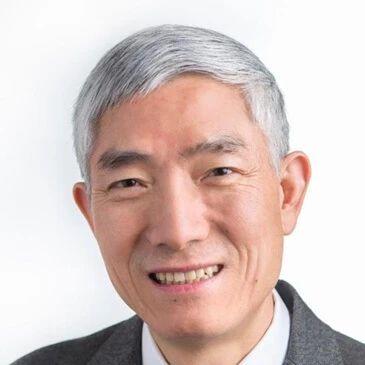
DeLiang Wang
The Chinese University of Hong Kong, Shenzhen
DeLiang Wang received the B.S. degree and the M.S. degree from Peking (Beijing) University and the Ph.D. degree in 1991 from the University of Southern California all in computer science. From 1991 to 2025, he was with the Department of Computer Science & Engineering and the Center for Cognitive and Brain Sciences at The Ohio State University, where he was a Professor and University Distinguished Scholar. He recently joined the School of Data Science, The Chinese University of Hong Kong, Shenzhen. He received the U.S. Office of Naval Research Young Investigator Award in 1996, the 2008 Helmholtz Award from the International Neural Network Society, and the 2025 Neural Networks Pioneer Award from the IEEE Computational Intelligence Society. He also received the 2007 Outstanding Paper Award of the IEEE Computational Intelligence Society and the 2019 Best Paper Award of the IEEE Signal Processing Society. He is a Fellow of IEEE, ISCA, and AAIA, and currently serves as the Editor-in-Chief of Neural Networks.
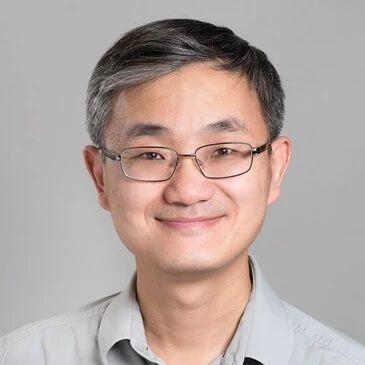
Wei Yu
University of Toronto
Wei Yu received the B.A.Sc. degree in computer engineering and mathematics from the University of Waterloo, Canada, and the M.S. and Ph.D. degrees in electrical engineering from Stanford University, U.S.A. He is a Professor and Canada Research Chair in Information Theory and Wireless Communications in the Electrical and Computer Engineering Department at the University of Toronto in Canada. Prof. Wei Yu is a Fellow of IEEE and a Fellow of the Canadian Academy of Engineering. He was the recipient of the IEEE Marconi Prize Paper Award in Wireless Communications in 2019, the IEEE Communications Society Award for Advances in Communication in 2019, the IEEE Signal Processing Society Best Paper Award in 2008, 2017, and 2021, the IEEE Communications Society and Information Theory Society Joint Paper Award in 2024, the Frontiers of Science Award in 2024, and the R. A. Fessenden Award from IEEE Canada in 2024. Prof. Wei Yu is a Clarivate Highly Cited Researcher. He served as the President of the IEEE Information Theory Society in 2021.
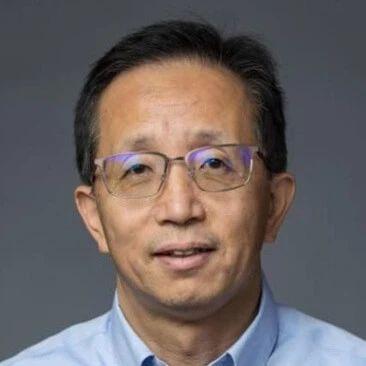
Hongkai Zhao
Duke University
Hongkai Zhao is the Ruth F. DeVarney Distinguished Professor and Chair of the Mathematics Department at Duke. He obtained his B.S. in Applied Mathematics in 1990 from Peking University and his Ph.D in Mathematics from UCLA in 1996.
His research interest includes scientific computing, numerical analysis, inverse problems and imaging, and scientific machine learning. He was awarded Sloan Research Fellowship, the Feng Kang Prize for Scientific Computing. He is a Fellow of SIAM.
03.Topic
Large Language Models
AI for Math
Combinatorial Optimization
ISAC
Quantum Optimization
More topics to come.
04.Trailer
Trailer of MIIS 2025
Contact Us
Registration Tel:
+86-0755-84273742 (Ms. Zhong)
+86-0755-84273397 (Ms. Li)
Email: miis@sribd.cn
2、若您发现信息有误或需要信息发布,请联系:
010-50830819;邮箱:meeting@scitoday.cn.




